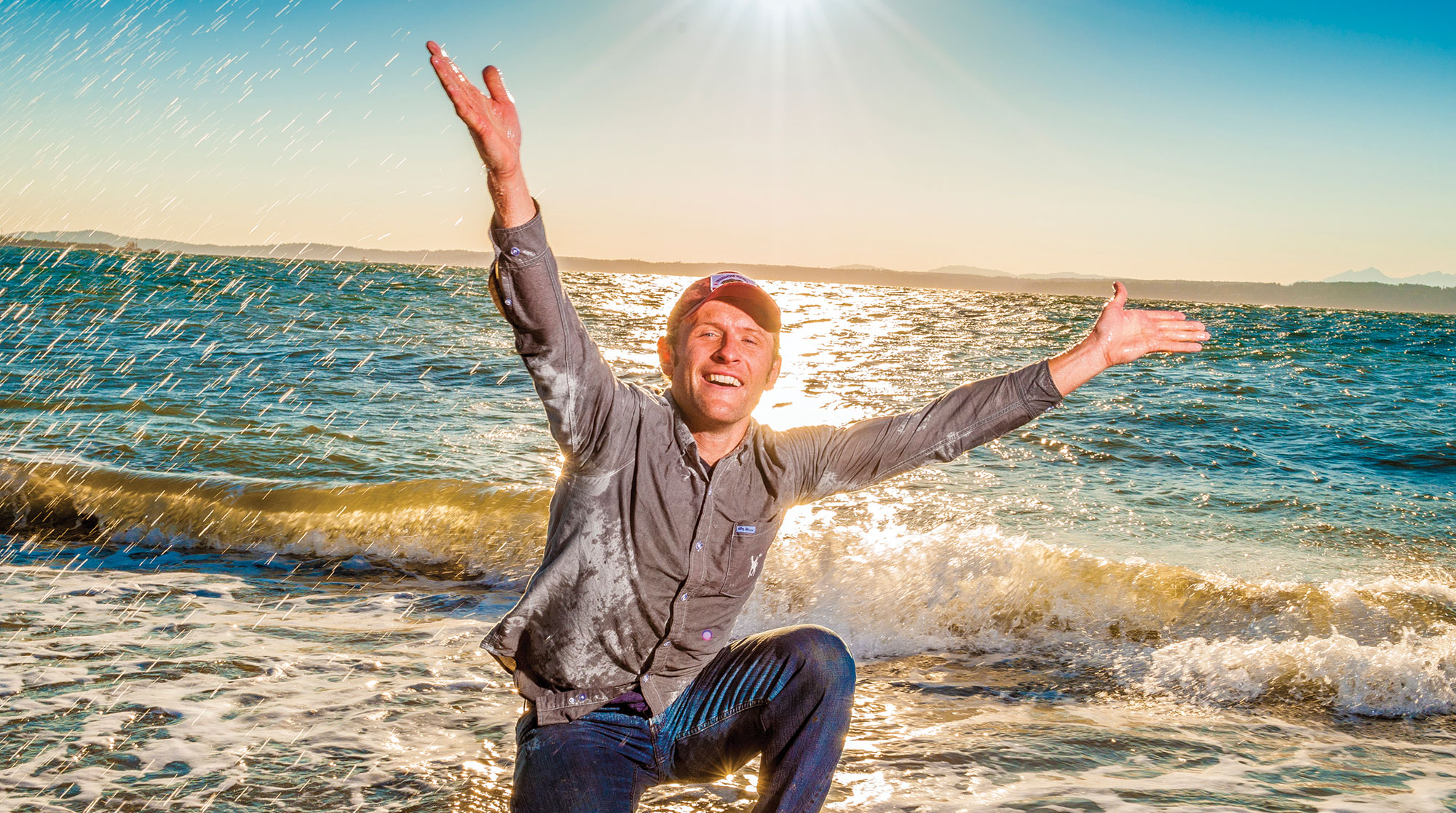

Sea salt is typically made in coastal areas where the climate stays warm and dry most of the year, but Brady Ryan, ’10, doesn’t like to do things conventionally. In 2012, he started San Juan Island Sea Salt, harvesting sea salt in the Pacific Northwest using techniques he began learning at UW.
Ryan started to think about locally sourced food while spending free time at the UW Farm. On winter break in 2008, he and some friends boiled salt water as an experiment, making holiday gifts from the salt they produced. After graduation, Ryan learned how to build greenhouses while working on a vegetable farm in Duvall. That’s when he got the idea to use this skill to create something local and marketable to island tourists.
Most sea salt on the market is 99 percent sodium chloride; Ryan’s salt is about 85 percent. He’s not interested in that last 14 percent, though. He’s more interested in having a simpler salt that more naturally reflects the taste of the Salish Sea surrounding San Juan Island.
It’s there, on his parents’ 40-acre property, where friends and family volunteer May through September to help harvest the salt in 90-foot-wide greenhouses. Inside each is a pond filled with three inches of filtered salt water. With insect mesh covering the openings, the greenhouse doors are left open for wind to flow through, extracting the humidity inside. After about a month’s time, salt rises to the pond surface.
“The salt that comes out is extremely coarse; it’s a jumble of every shape imaginable, from cubes to flakes to pyramids and tiny pieces,” says Ryan. He then grinds and sifts the salt until it forms into something visually appealing. “We want to push people a little beyond table salt, but not completely scare them away.”
Ryan packages his salt in wide-mouthed glass jars with a distinctive logo representative of the geography of San Juan Island. He sells it at farmer’s markets, online (http://www.sanjuanislandseasalt.com/) and in specialty stores in the area. Enjoying a seasonal lifestyle, Ryan tends 15 beehives and an orchard when he’s not harvesting his salt. Eventually, he hopes to expand his business to other local food products.
“Over the last year, I’ve come to a fuller realization of what this product really means to me,” says Ryan. “At first, it was just a fun little gimmick, but now it’s actually an expression of who I am and where I come from.”